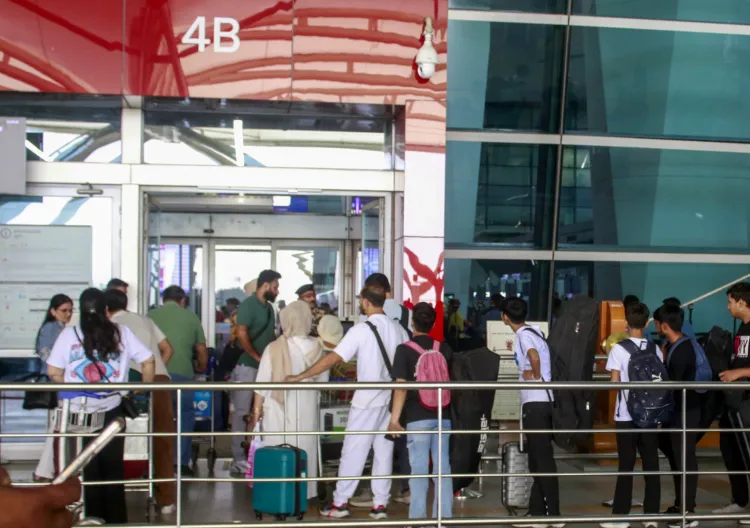How Did India’s Aviation Sector Become the World’s Third-Largest Market?

Synopsis
Key Takeaways
- India is now the third-largest aviation market globally.
- 7.7 million jobs have been created in the aviation sector.
- The aviation industry contributes 1.5 percent to India's GDP.
- The Middle East is the top destination for Indian flyers.
- There are currently 116 airports in India providing commercial services.
New Delhi, June 2 (NationPress) India’s aviation sector has witnessed remarkable growth, propelling it to the status of the world’s third-largest aviation market in terms of passenger traffic, as reported by the International Air Transport Association (IATA).
Amitabh Khosla, the IATA country director for India, Nepal, and Bhutan, highlighted that India's ascent to third place on the global stage is attributed to more robust airlines, improved connectivity, and enhanced airport infrastructure.
He emphasized the aviation industry as a crucial catalyst for employment, economic development, international trade, and investment in the nation.
According to the report, India’s aviation sector now contributes 1.5 percent to the country’s Gross Domestic Product (GDP) and has generated around 7.7 million jobs, both directly and indirectly, across the nation.
Khosla remarked, “In 2023, the industry made a $53.6 billion contribution to India’s economy, thereby supporting 7.7 million jobs in the country.”
Tourism, bolstered by aviation, contributes Rs 2,710 crore to the GDP. International visitors contribute an additional $29.4 billion annually to the economy through local purchases of goods and services. “In total, the travel and tourism sector represents 6.5 percent of the nation’s GDP and 8.9 percent of total employment in 2023,” he noted.
The Middle East emerged as the leading international destination for Indian travelers in 2023, accommodating 13.7 million passengers, followed by the Asia Pacific region and Europe.
To cater to the increasing demand, airlines have enhanced flight frequencies and seat capacities. Scheduled flights surged by 77.7 percent to approximately 1.3 million in 2024. Most of these were domestic, with flights rising from 613,000 in 2014 to nearly 1.1 million in 2024. Indigo spearheaded this growth, operating 53 percent of all departing flights within and from India.
Consumers have reaped the rewards of heightened competition, which has led to a 25 percent decrease in real airfares in 2023 compared to 2011, Khosla pointed out.
Currently, India boasts 116 airports offering commercial scheduled services, with 96 providing direct connections and 521 outbound international flights daily. In the past five years, 103 new international routes have been added. The country is home to 99 operational airlines.
India has also positioned itself as the sixth-largest air cargo market globally, transporting 3.3 million tonnes of air freight in 2023.
As of December 2024, the international sector was nearly 20 percent above its 2019 levels, while domestic operations surpassed 8 percent, indicating a strong outlook for the future, he concluded.










